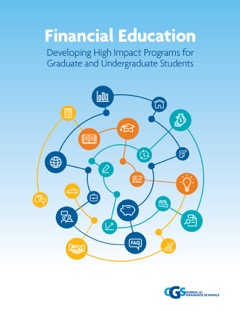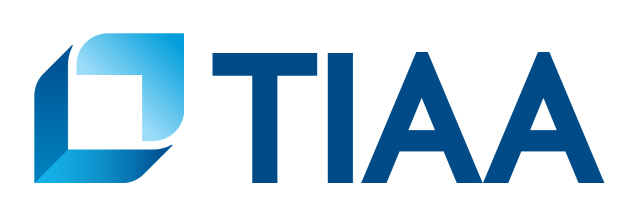You are on CGS' Legacy Site.
Thank you for visiting CGS! You are currently using CGS' legacy site, which is no longer supported. For up-to-date information, including publications purchasing and meeting information, please visit cgsnet.org.
Today’s graduate and undergraduate students are in a much different place financially than previous generations of students. In 2012, total student debt for the first time exceeded $1 trillion and is now over $1.3 trillion. Rising debt levels can cause some students to defer graduate study or to decide that a graduate degree is not for them. At a time when public funding for education is decreasing and student debt is rising, more students are taking on debt to support their educational aspirations.
To help students learn how to successfully manage their finances and educational costs, the Council of Graduate Schools, funded by a grant from TIAA, a leading financial services organization with a long history of serving those in the academic, research, medical and cultural fields, launched a three-year project to enhance the financial literacy of graduate and undergraduate students.
Project Goals
Participating colleges and universities designed programs that prepare students to play an active role in managing their personal finances and making informed decisions about saving, spending, and borrowing. The institutions addressed the needs of different groups of students, while considering factors such as their field of study, degree levels, and chosen career pathways, each of which has significant financial ramifications. CGS and partnering institutions collected and analyzed data to inform the development of innovative, new tools and resources for students.
Key lessons and data from this groundbreaking program are available in the report: “Financial Education: Developing High Impact Programs for Graduate and Undergraduate Students,” available in PDF and at studentfinancialsuccess.org. Through this initiative, CGS and partnering universities developed and delivered high quality financial literacy programs, assessed the impact of those programs, and documented best practices. Financial Education illustrates these efforts in-depth and provides diverse and innovative models and practical resources for helping produce and shape effective student financial education programs. This book will be of particular interest to graduate deans, financial aid officers, program directors, and faculty who are interested in understanding the financial circumstances and meeting the needs of today’s graduate students. Hard copies of this report are available to CGS members and non-members for purchase here.
GradSense
CGS has developed GradSense.org, a unique online education platform that provides students with financial information about a range of topics including the value of pursuing an advanced degree. Through interactive visualization tools and engaging infographics, we invite students to better understand a variety of issues related to borrowing and spending, potential future earnings, and money management.
To integrate GradSense and related resources into your webpages, click here.
Online Resource Library
CGS has compiled helpful resources and tools for institutions, deans, and program directors seeking to prepare students for managing their personal finances and making informed decisions about saving, spending, and borrowing.
Research Partners
Through a competitive proposal process involving an independent selection committee, 15 institutions were selected and participated in the project as funded research partners. The institutions selected were:
- Arkansas State University
- Cornell University
- The Ohio State University
- University of Colorado System
- Eastern Illinois University
- Florida A&M University
- Iowa State University
- Kansas State University
- Loyola University Chicago
- Mississippi State University
- University of Illinois at Urbana-Champaign
- University of Kentucky
- University of Maryland, Baltimore County
- University of South Florida
- Winthrop University
An additional 19 universities participated in the project as affiliate partners.
Contacts
In collaboration with:






